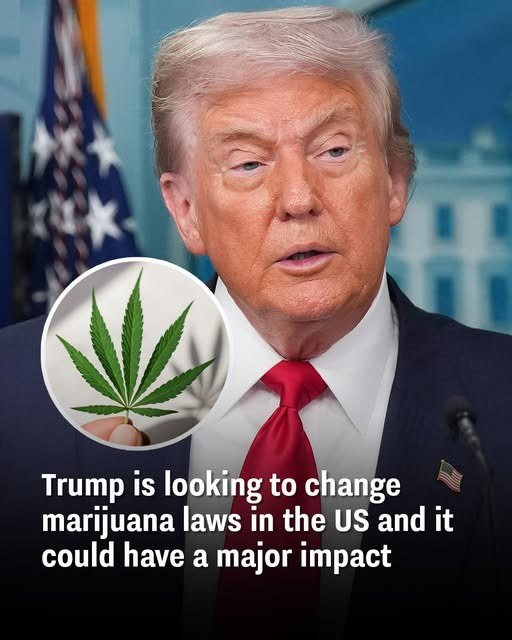
In recent years, few policy debates have evolved as quickly and dramatically as the conversation surrounding cannabis in the United States. Once regarded primarily as an illicit substance, cannabis has become a central topic in discussions of healthcare, economics, criminal justice reform, and states’ rights. Now, the possibility of a significant federal policy shift has entered the national stage, with reports that the administration of former President Donald Trump considered reclassifying cannabis under federal law.
While no final decision has been made, the very fact that the U.S. government acknowledged reviewing cannabis policy marks a historic moment. For over 50 years, marijuana has been classified as a Schedule I controlled substance under the Controlled Substances Act of 1970—a category reserved for substances deemed to have a high potential for abuse and no accepted medical use. This classification has shaped everything from criminal penalties to tax regulations, research opportunities, and the broader cultural narrative around cannabis.
If reclassification occurs, it could reshape the American landscape in profound ways: opening opportunities for medical research, changing the way businesses operate, and reducing strain on the criminal justice system. At the same time, the debate raises complex questions about public health, youth safety, and the balance of power between federal and state governments.
Why Cannabis Classification Matters
To understand the gravity of the potential shift, it’s helpful to revisit the current legal framework. Cannabis has been treated as a Schedule I drug for more than half a century. This means that, under federal law, it is considered more dangerous than substances like cocaine (Schedule II) or certain prescription painkillers.
This classification has carried far-reaching consequences:
Medical Research Restrictions: Because of its Schedule I status, researchers have faced significant barriers to studying cannabis. Federal approval processes are lengthy and restrictive, limiting scientific understanding of its potential benefits and risks.